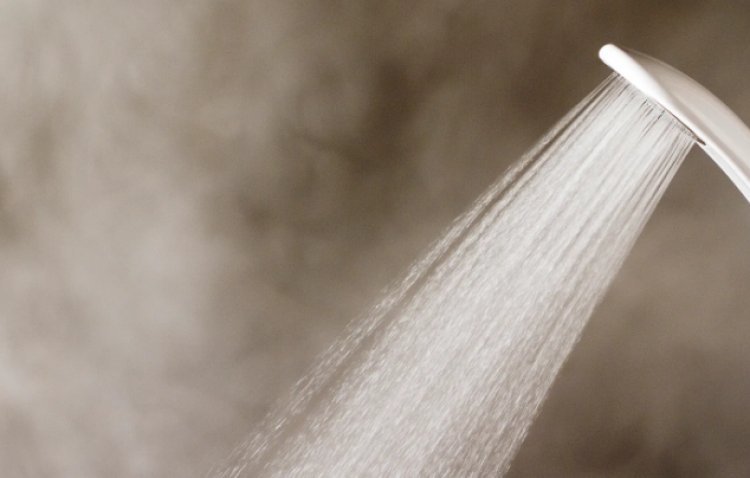A warm shower can improve your quality of sleep
Having trouble falling asleep at night? Before going to bed, consider having a warm shower to enhance the quality of your sleep.

INTRO
- Before going to bed, take a warm shower to help control your body temperature.
- This results in better sleep quality.
- Additionally, it eases tension and relaxes muscles.
When a busy day is over, all we need to unwind and refresh is a warm shower and a reassuring hug. However, have you ever noticed that it's simpler for you to go to sleep after engaging in this relaxing routine? Well, it turns out there's a simple reason behind it. Our ability to control our body temperature through warm water promotes better sleep.
By reducing the amount of perspiration and body oils that collect on your bedding, taking a shower at night also ensures that you'll go to bed feeling more refreshed.
A meta-analysis of multiple studies found that "water-based passive body heating as a warm shower or bath before bedtime is often recommended as a simple means of improving sleep."
Recognizing how it affects body temperature
"Taking a warm shower at night increases body temperature, and the subsequent drop in temperature upon exiting signals to your body that it's time to sleep," explains Dr. Arun Kotaru, pulmonology and sleep medicine consultant at Artemis Hospital in Gurugram.
This drop imitates the reduction in body temperature that naturally happens as a function of the circadian rhythm, which controls the cycle of sleep and wakefulness.

The body receives a signal to go to sleep from the abrupt temperature shift.
The sleep cycle and body temperature are positively affected by taking a warm shower at night, according to Dr. Satyanarayana Mysore, Head of Department and Consultant in Sleep Medicine at Manipal Hospital in Bengaluru.
"A healthy circadian rhythm promotes sound sleep at night. The doctor explains that one of the causes of this is that as the temperature drops, there is a natural stimuli control that is linked to improved sleep.
Many Benefits
Taking a shower before bed has several advantages for sleep.
- It eases tension, promotes healthy circulation, and relaxes muscles, making it easier to unwind and get ready for bed.
- It also revitalizes the body and mind.
- It removes the grime and perspiration of the day, creating a fresh and cozy feeling that is ideal for sleeping.
Dr. Kotaru continues by saying, "The duration of the shower before bed should ideally be 10-15 minutes, taken about 1-2 hours before bedtime to allow sufficient time for the body to cool down afterward."
Moreover, Dr. Mysore advises using a neutral oil, such as olive oil, that you can wash off after taking a shower to massage the muscles in your feet and calves.
Can a cold shower also do the trick?
Although warm showers are generally advised for relaxation, some people might discover that a cold shower feels good right before bed.
According to Dr. Kotaru, "Both warm and cold showers can have benefits for sleep, depending on individual preferences and responses."
Warm showers are generally linked to relaxation, however, cold showers might cool down the body before bed and feel refreshing.

Night showers hit differently
As per the experts, taking a night shower can be more advantageous in fostering relaxation and supporting sleep when juxtaposed with morning showers, which are often intended to awaken and revitalize the body.
Dr. Mysore does point out that "a night shower taken to enhance sleep is not a substitute for a morning shower."
Make sure the room is cooler and do something relaxing, such as read a book in indirect light or listen to relaxing music, after taking a warm water shower, preferably an hour or thirty minutes before bedtime.
Additionally, it's crucial to avoid using soap and soap solutions, particularly after taking a nighttime shower meant to promote sleep. By stimulating the skin's tiny, thin nerve endings, soap or solutions can interfere with the stimulus control system.
Here are some additional suggestions for improving your quality of sleep.
- Establish a calming nighttime routine and stick to a regular sleep schedule.
- Don't drink or consume caffeine right before bed.
- Watching television will interfere with your sleep because of the bright lighting, interesting content, and possibility for emotional arousal. Take a vacation from screens and avoid watching TV.
- Establish a cosy sleeping space and engage in relaxing activities like deep breathing or meditation.
- Steer clear of large meals and spicy foods right before bed.
- Finally, if you have trouble falling asleep, don't be afraid to get expert assistance.
Cold Shower vs. Warm Shower














